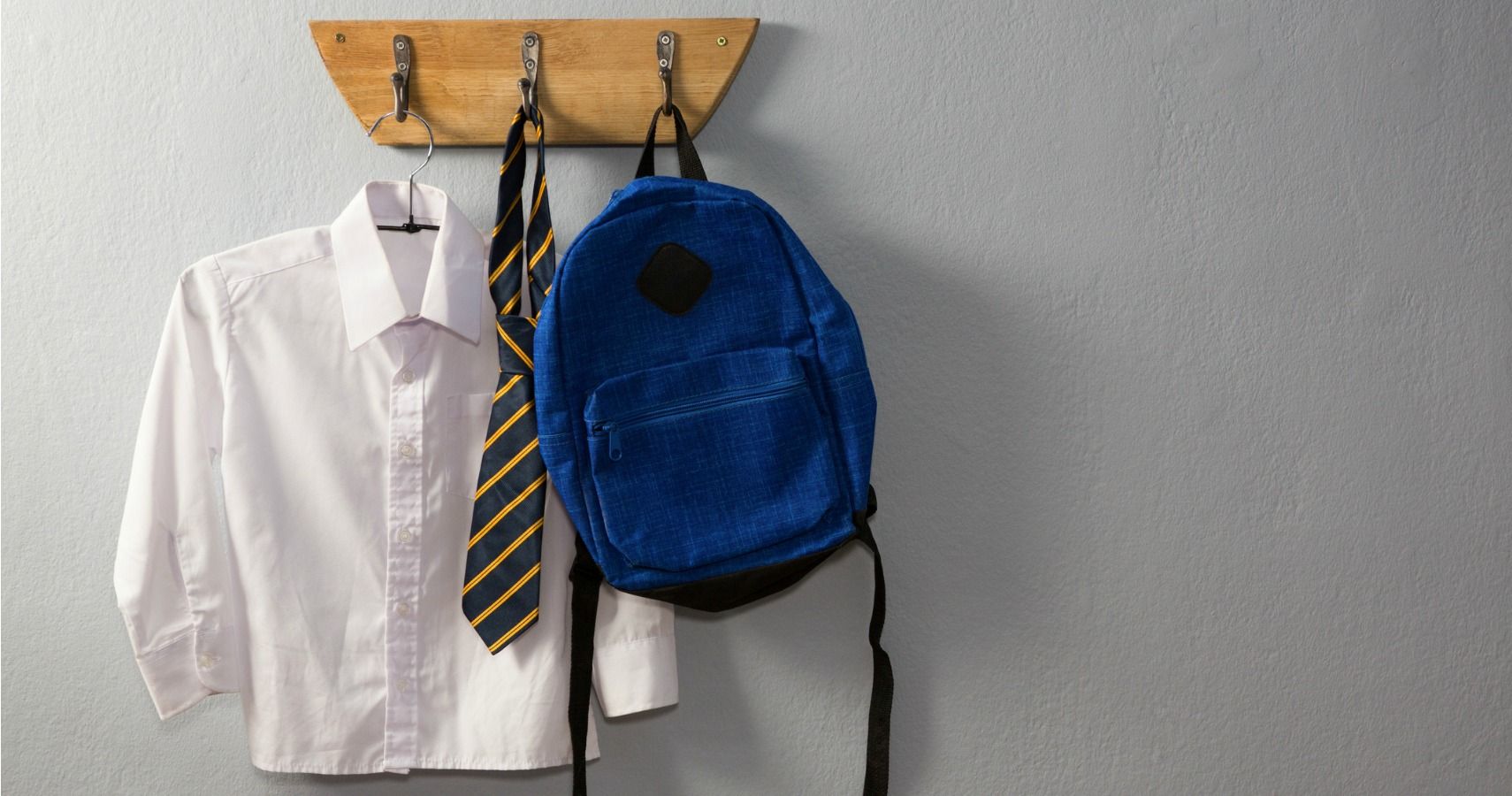Navigating your child's school years feels more complex than it likely was for our own parents when we were growing up. With public school funding not what it used to be, it has become harder than ever to choose what type of education is best for your family. Many parents may presume a private school education is the best option, particularly if your motto is you get what you pay for. But an article published in Educational Researcher points to a study that deems private school alone isn't the answer to a stellar school experience.
Researchers at the University of Virginia found that if a family makes less money than, say, the rest of the student population at a private school, the student from that family isn't guaranteed to do well. But before you start stressing about how your bank account is affecting your kiddo (which many of us already do), study author Robert Pianta says we really have to look at the family background as a whole to predict student success. And that background is important as early as kindergarten.
However, if private school feels like a major stretch for your family financially, finding a way to simply "make it work" may not be enough to make that seemingly prestigious institution worth it.
RELATED: Mom Posts Genius Organizing Hack To Take The Stress Out Of School Mornings
"We look at these kids when we assess them in ninth grade, and if you just simply look at private school versus public school you see huge benefits to being in private school," Pianta said in an interview with WBUR. "And then as soon as you put in family income, those differences disappear — and they never reappear again, no matter how many other variables that you put in."
Much of what it boils down to is that while students from financially-strapped families may receive the same classroom studies as their more affluent peers, it's the extras that are likely out of reach that then take away from the experience. For example, if parents are spending their hard-earned money on tuition alone (not to mention the donations schools ask for all year), they aren't as able to pay for tutoring, extracurriculars, and other types of enrichment courses not included in the standard school day.
This isn't to say that families with a lower income should avoid private school altogether, but the study results are certainly something to account for when making a decision about where to send a child to school. Parent involvement, affordable enrichment, and a desire to learn can make a difference no matter where one receives their education.
READ NEXT: What You Need To Know About Back-To-School Anxiety

